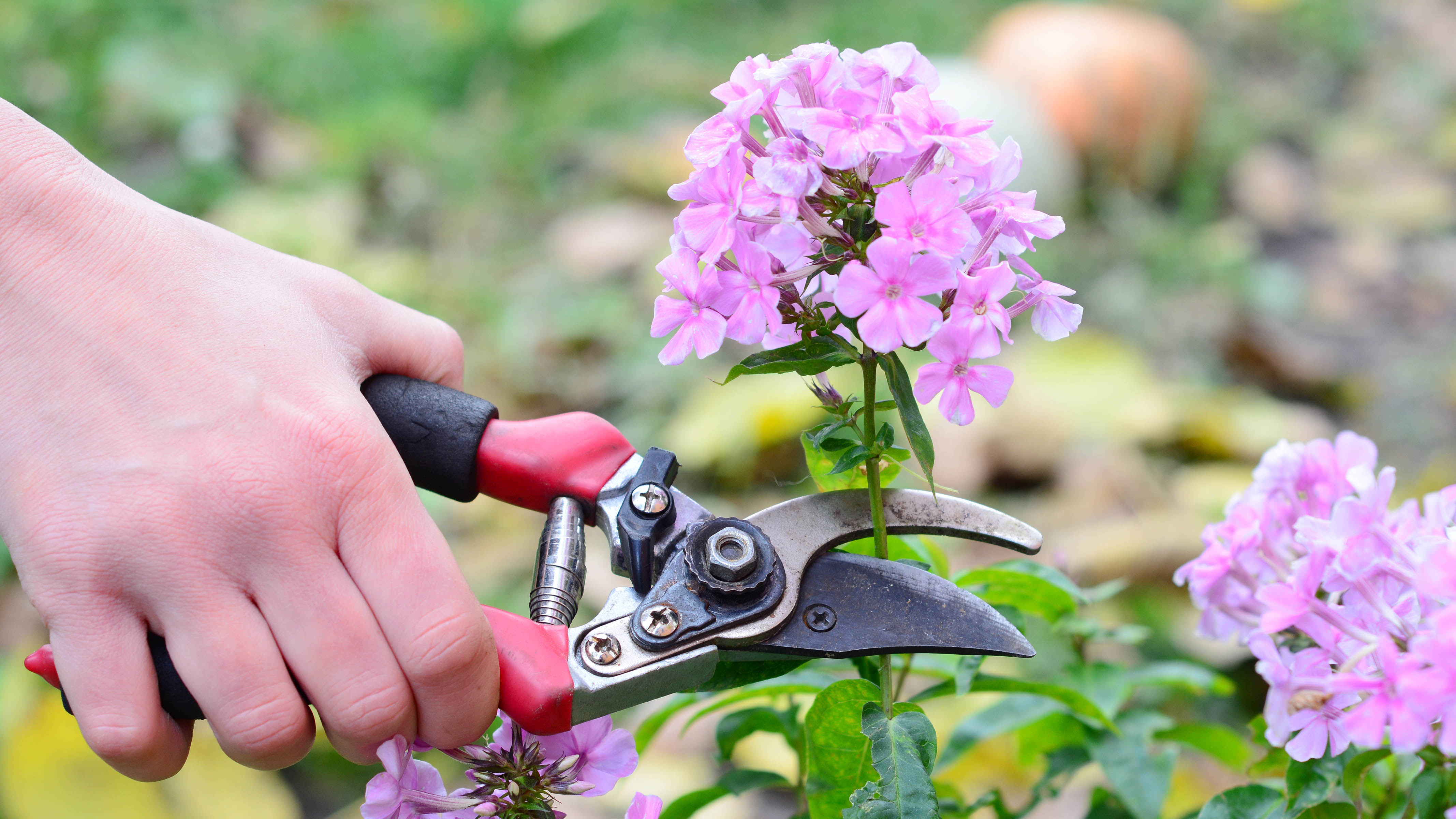How to clean a mirror without leaving streaks
Here’s how to clean a mirror and get rid of smears and smudges
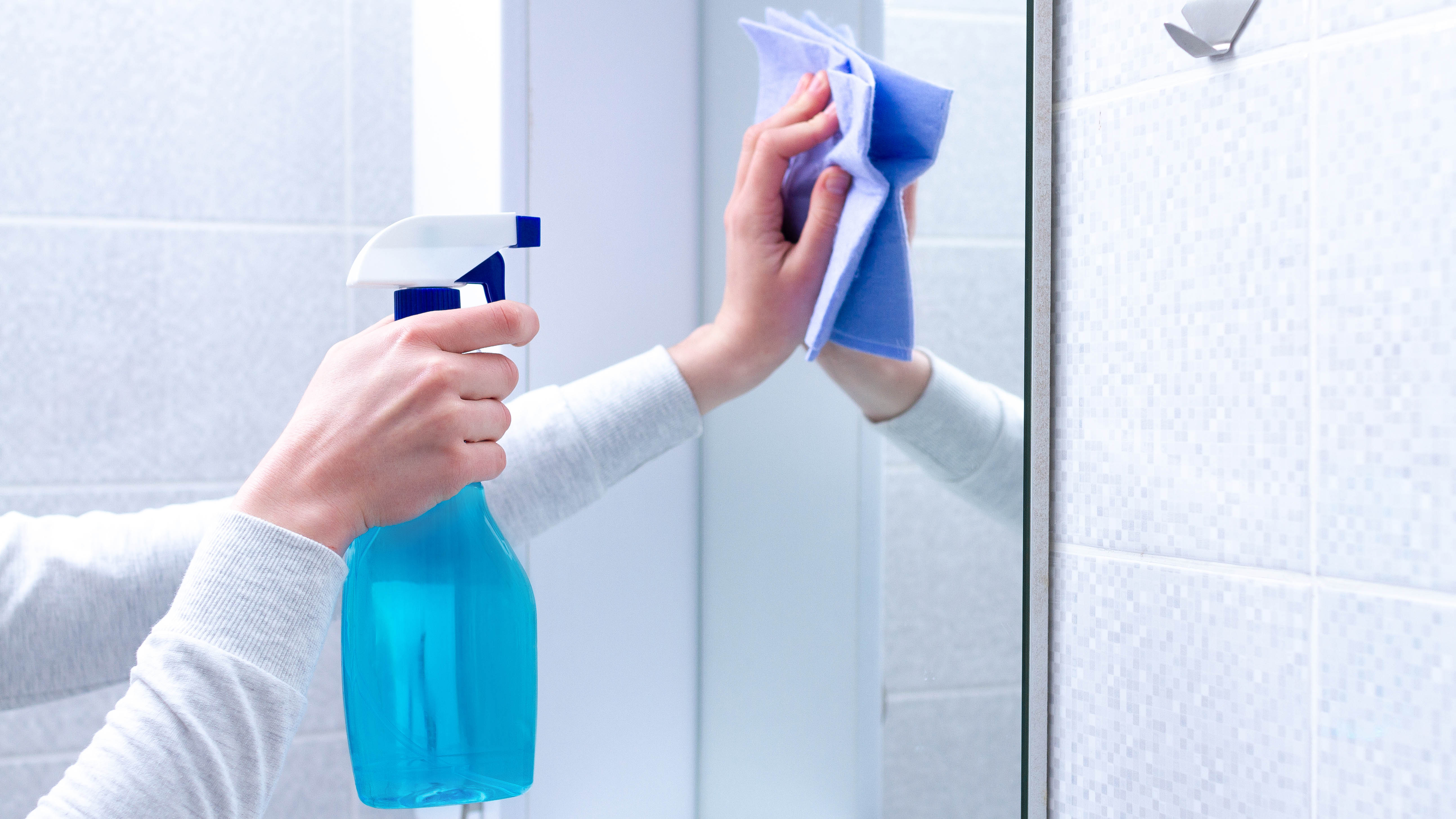
Asking how to clean a mirror might seem like a silly question — you just use a window cleaner, right? Actually, that’s not the only way to do it. Perhaps you’ve run out of window cleaner, or perhaps you want to get rid of your chemical cleaners. In either case, there’s actually another method you can use and the good news is you might already have what you need.
It’s very quick and easy to do, and it’s arguably as important as knowing how to clean a glass shower door, or how to clean a shower head. You won’t be resorting to the bleach either. However, if you often use bleach, make sure you don’t make this mistake. So, here’s how to clean a mirror without leaving streaks, smears or smudges.
If your windows need a once-over too, check out our guide on how to clean windows.
How to clean a mirror
Your mirror might be covered in all sorts of products, from stray toothpaste, to hairspray and even foundation.
Rubbing alcohol (optional)
Cotton pads/balls
White distilled vinegar
Water
Empty spray bottle
Microfiber cloths
Dish soap (optional)
If that’s the case, you’re going to want to tackle these first before you clean the whole mirror, otherwise you will just end up spreading and smearing. The answer is rubbing alcohol.
Apply a few drops of rubbing alcohol to a cotton ball, cotton pad or soft cloth. It’s imperative that you use something soft, otherwise you could end up scratching the mirror. Then gently dab at the residue until it dissipates. Try not to scrub your mirror — be patient and keep dabbing. Pretreating your mirror like this is worth doing as it makes the next step much easier.
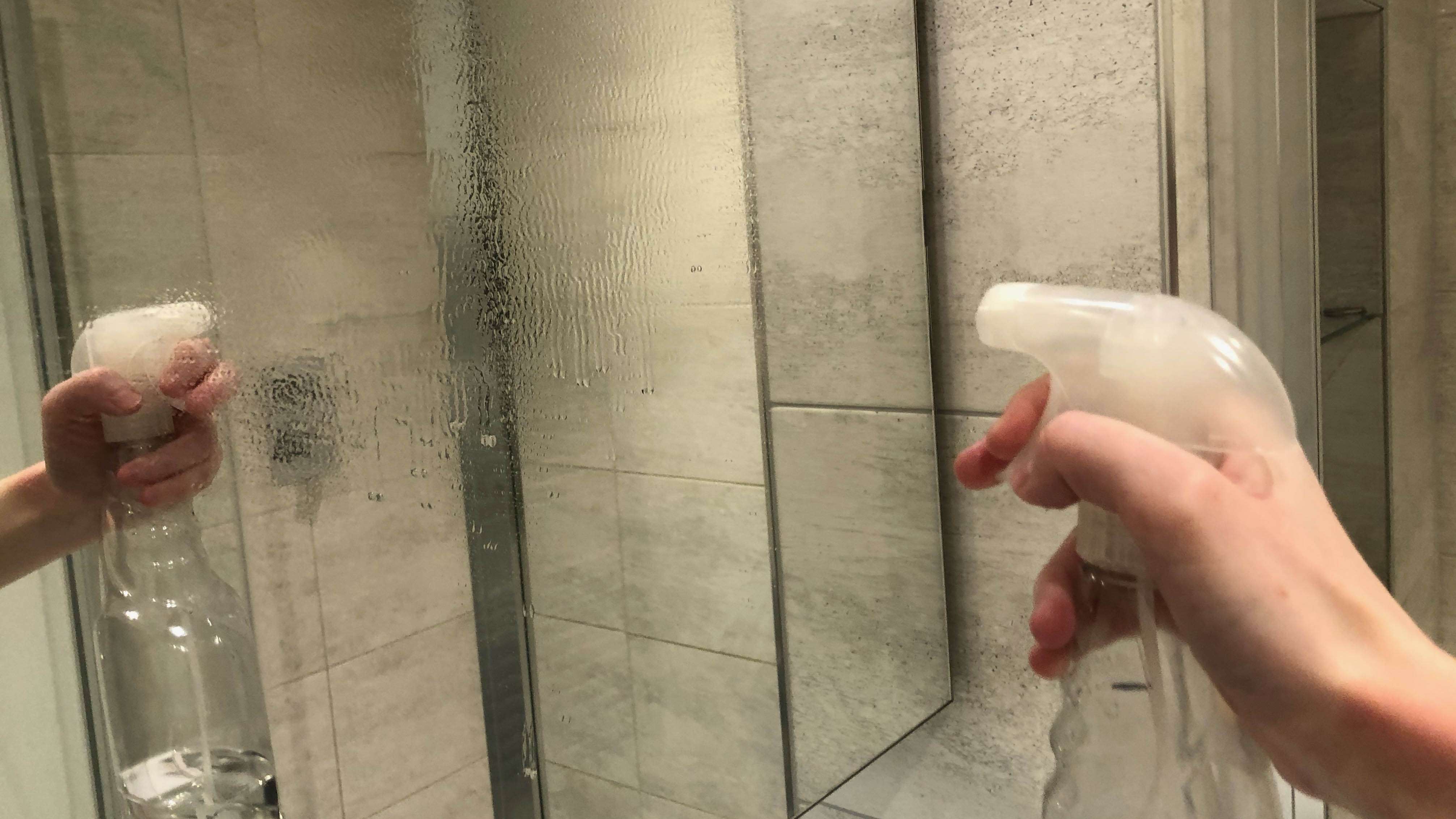
Now your mirror is free of gunk, you can get to work on the smears. Simply combine one cup of white distilled vinegar (not malt, it will still work, but you’ll thank us for the difference in smell) with one cup of water in an empty spray bottle. We advise opening a window or leaving the doors open to air the room before you begin to apply, as white vinegar still smells.
Sign up to get the BEST of Tom's Guide direct to your inbox.
Get instant access to breaking news, the hottest reviews, great deals and helpful tips.
Shake to mix and then spray the solution onto your mirror. Don’t spray too liberally at first as you might not need it and don’t want to make a mess. Use your best judgement, but if you’re unsure, you can work between each spray to decide if you need more. To wipe the mirror, use a dry microfiber cloth. Some recommend that you can also use newspaper or rags, but in my experience, microfiber cloths are best as they don’t leave lint and dust behind. If you don't have any to hand, we recommend MR.SIGA Microfiber Cleaning Cloths ($11.99, Amazon).
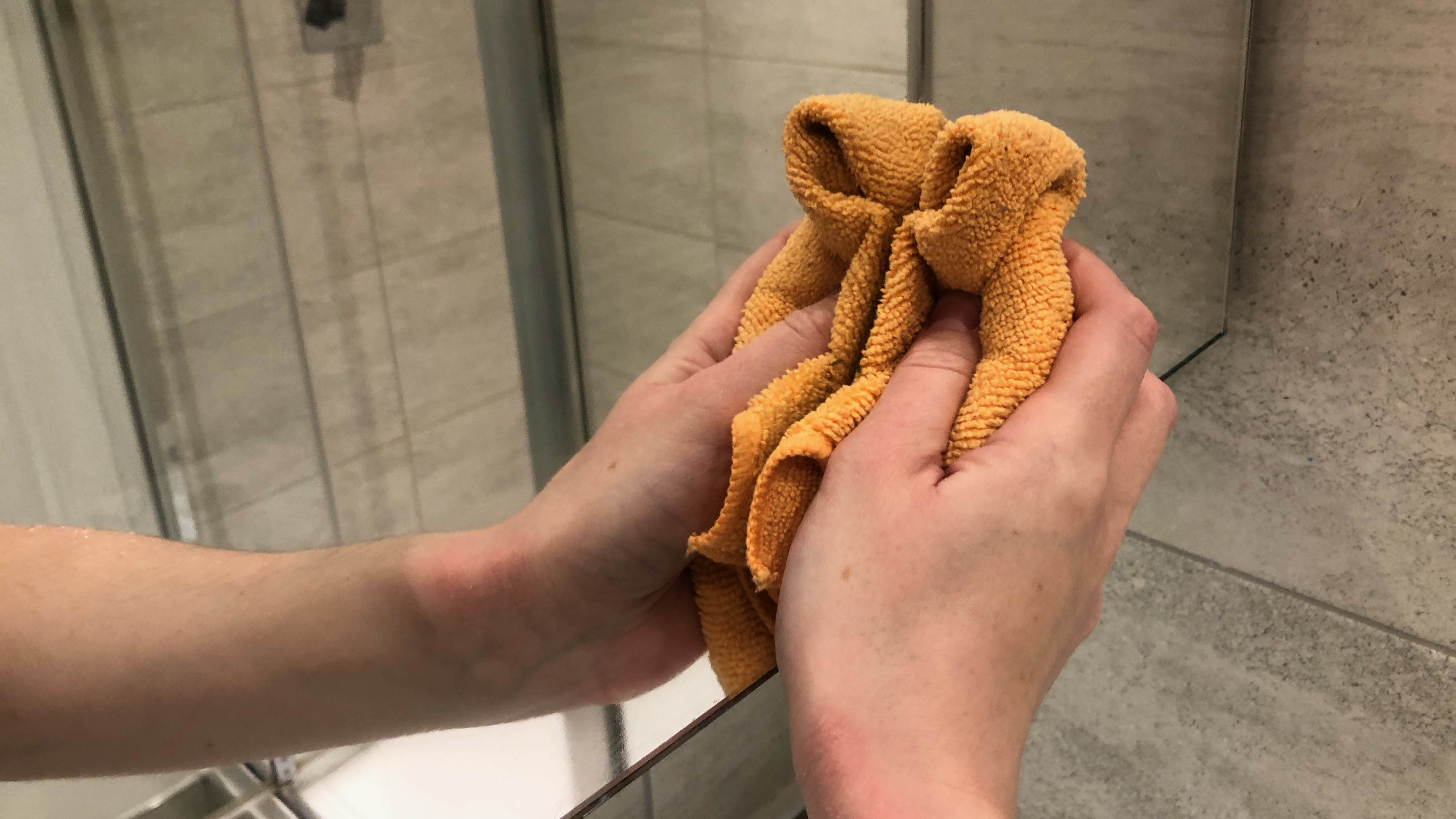
You want to wipe in a side-to-side motion, not circular. A circular motion will actually redeposit dust back onto the mirror, so it’s counterproductive. Make sure you work all the way to the edges and into the corners. Keep buffing and your mirror will look spotless in no time. If you want to check your work, walk around the mirror to see it from different angles. This will help you spot any rogue smears.
How to keep a mirror from fogging up
If you’re cleaning a bathroom mirror and you want to stop it from fogging up, there is a way. You simply apply a drop of neat dish soap to a clean microfiber cloth (you won’t need much) and then wipe it all over your clean mirror. Use a side-to-side motion again.
This will look very smeary at first and takes quite a while to buff in, but it works. Your mirror will no longer fog up, and this lasts for a few weeks.
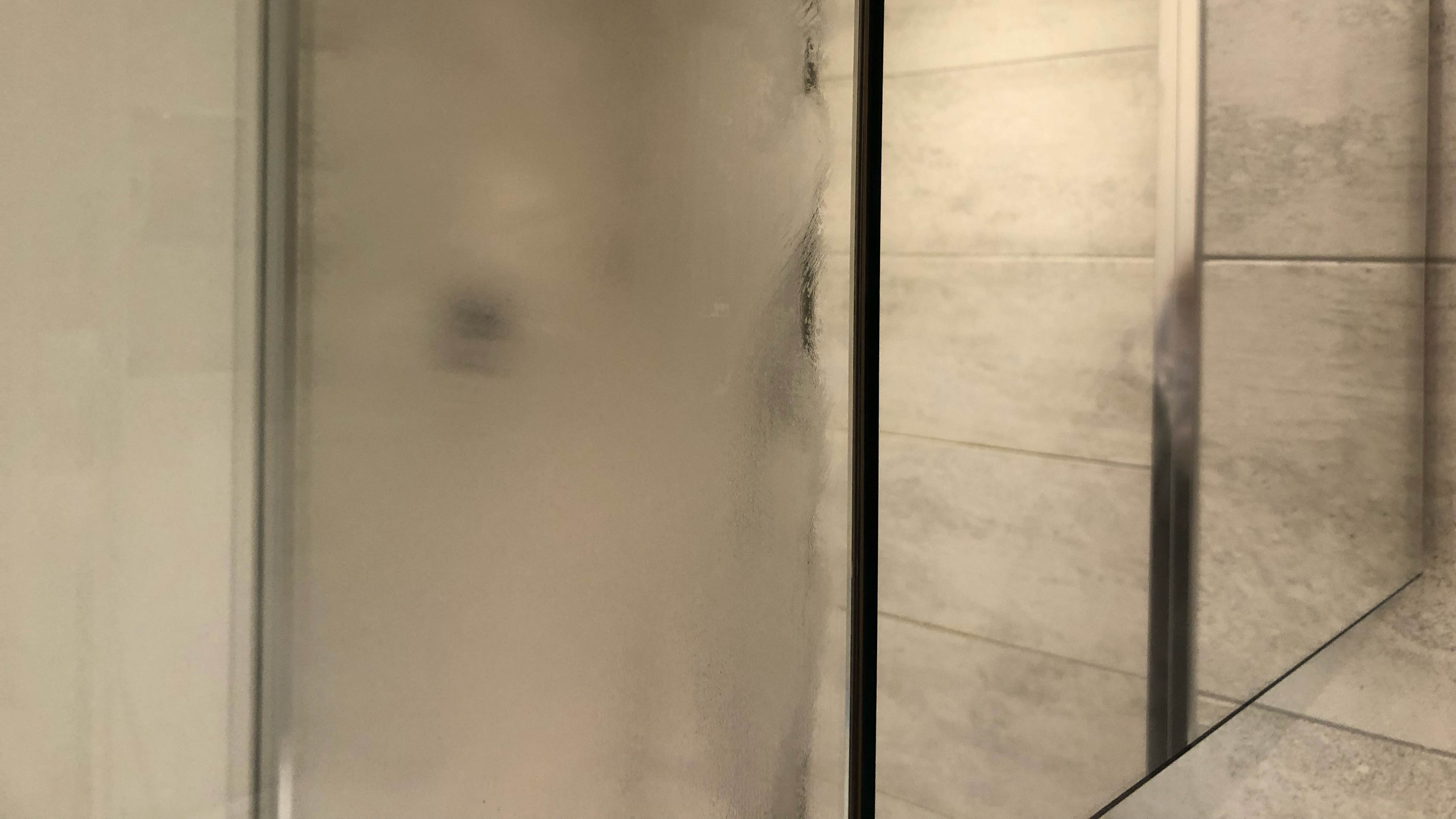

Katie Mortram used to be a Homes Editor for Tom's Guide, where she oversaw everything from kitchen appliances to gardening tools, as well as smart home tech. Specializing in providing expert advice for cleaning and home manintenance, she now works as Household Advice Editor for Good Housekeeping.
